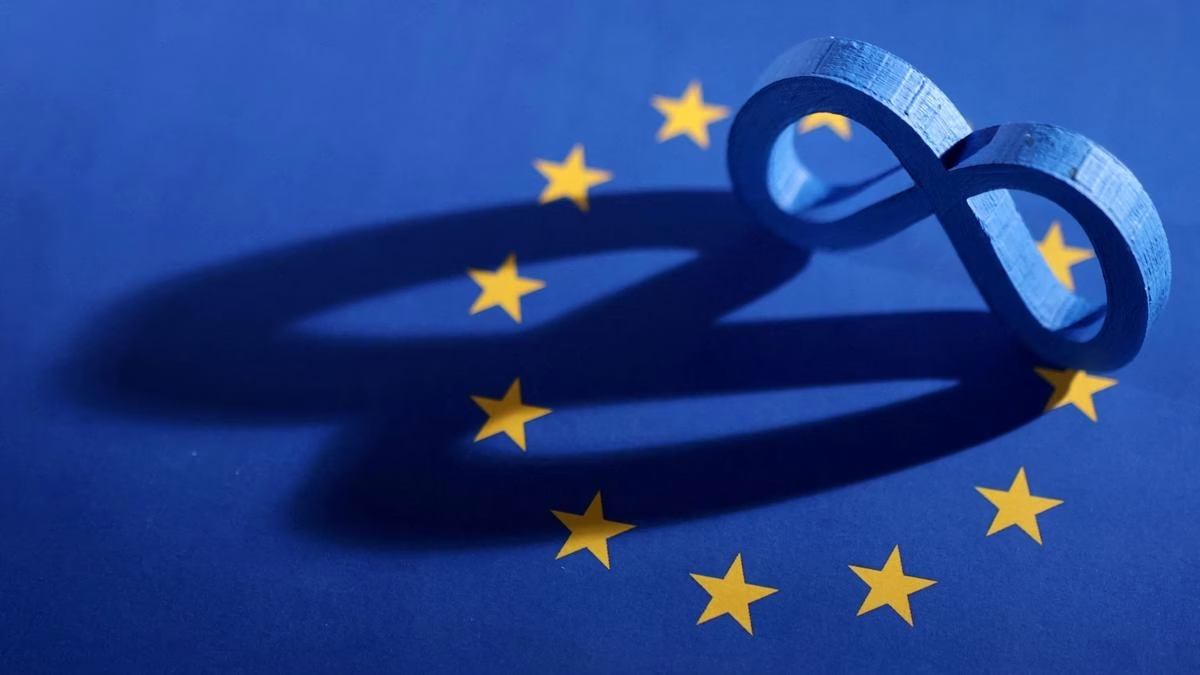The Unlawful Claim: Meta's Stance on Its €200M EU Fine
The digital landscape, particularly in Europe, is a fascinating battleground where innovation meets regulation. And right now, one of the most prominent skirmishes involves Meta and the European Commission. The tech giant is pushing back hard against a hefty €200 million fine, slapped on them by the EU for their "pay-or-consent" advertising model. Meta isn't just grumbling; they're calling the decision "incorrect and unlawful," and they're appealing it. It's a bold move, but one that highlights the deep philosophical and business model divides between Silicon Valley and Brussels.
The Heart of the Matter: Pay-or-Consent
So, what exactly is this "pay-or-consent" model that's causing such a stir? Simply put, Meta introduced an option for users in Europe: either pay a subscription fee to use their platforms (Facebook, Instagram) without personalized ads, or continue using them for free, but consent to having their data used for targeted advertising. For many, it seemed like a straightforward choice. You want free services? You accept the trade-off of personalized ads. You don't want ads? You pay. Simple, right?
Well, not for the European Commission. They see it differently, viewing this model as falling afoul of the Digital Markets Act (DMA). Their contention is that Meta, as a designated "gatekeeper" under the DMA, isn't offering a truly free alternative that respects user choice regarding data privacy. Instead, the Commission argues, Meta is essentially forcing users into a corner: either pay up or surrender their data for highly personalized advertising.
The Digital Markets Act: A New Regulatory Frontier
To truly understand this dispute, we need to grasp the essence of the Digital Markets Act. The DMA isn't just another piece of privacy legislation; it's a sweeping regulation designed to curb the power of large online platforms, or "gatekeepers," and ensure fair competition and user choice in the digital economy. It aims to prevent these dominant players from imposing unfair conditions on businesses and end-users.
The €200 million fine, while a considerable sum, is relatively small change for a company of Meta's size. But its significance isn't in the monetary amount. No, it's symbolic. This fine underscores the EU's unwavering commitment to enforcing the DMA and setting clear boundaries for how tech giants operate within its borders. It’s a statement that says, "We mean business, and we will use this new law to reshape the digital market."
Meta's Legal Counter-Argument and the Precedent Question
Meta's appeal isn't just a knee-jerk reaction; it's rooted in what they claim is consistent legal support from national courts and data protection authorities across Europe. They specifically mention France, Denmark, and Germany as countries where their "business models that provide a paid subscription alternative to consent for personal data use for personalized ads" have received support. This is a crucial point, suggesting a potential disconnect between national interpretations and the European Commission's broader application of the DMA.
The company's argument hinges on the idea that they "deserve fair compensation for the valuable and innovative services that users choose to use." This isn't just about their bottom line; it's about what they perceive as a fundamental principle of market economy. If they can't monetize through personalized ads without explicit, uncoerced consent, and they can't charge a fair price for an ad-free experience, then what's left? They argue the decision "imposes a potentially unviable business model."
This appeal, therefore, isn't just about Meta. The outcome could set a significant precedent for how subscription models and data consent mechanisms are treated under the DMA across the entire European Union. Other tech companies, I'm sure, are watching this very closely.
Broader Implications and the Road Ahead
The ongoing saga between Meta and the EU is more than just a legal spat; it's a microcosm of the growing tension between US tech giants and European regulators. The EU is clearly determined to assert its digital sovereignty, and the DMA is a powerful tool in that endeavor.
If Meta's appeal fails, they will likely be forced to significantly alter their ad model in Europe. This could mean offering a truly free, non-personalized ad service, which would undoubtedly impact their revenue streams and, arguably, the effectiveness of their advertising for businesses. It's a tough pill to swallow for a company built on the personalized ad model.
The Register's article ends with a rather provocative thought: "A world without social media. What might that be like?" While perhaps a bit dramatic, it highlights the core tension. The EU believes social media is "integral" to the daily lives of its citizens, yet simultaneously seeks to regulate how these services operate. Meta's response to this "integral" assertion has been, shall we say, less than convincing. It suggests a fundamental disagreement on the very nature of these platforms and their role in society.
Ultimately, this legal battle is far from over. It's a complex dance between regulatory ambition, corporate interests, and user rights. The outcome will undoubtedly shape the future of digital services in Europe, influencing not just Meta, but potentially every major online platform operating within the bloc. It's a fascinating, if sometimes frustrating, period for anyone interested in the intersection of technology and governance.
